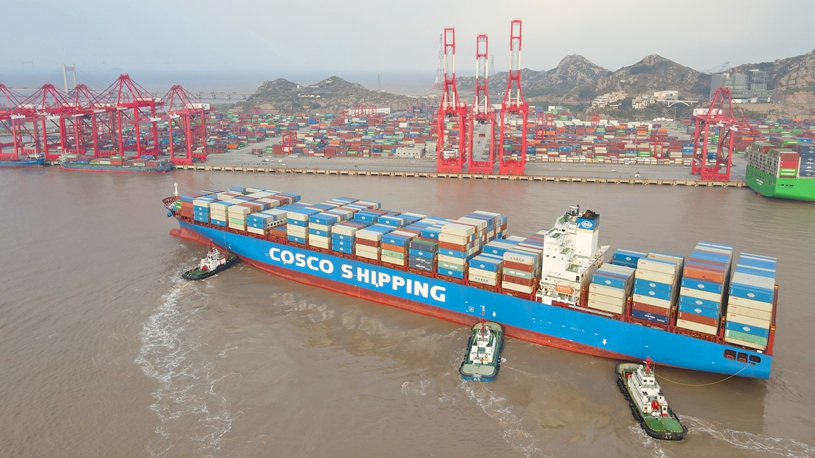German Chancellor Olaf Scholz on Thursday urged the European Union to quickly reach a deal with China on the tariff dispute over electric vehicles.
BRUSSELS, Dec. 19 (Xinhua) -- German Chancellor Olaf Scholz on Thursday urged the European Union (EU) to quickly reach a deal with China on the tariff dispute over electric vehicles (EVs).
"It makes no sense to have conflicts about this. Therefore, I appeal to everyone to bring these negotiations to a good result now," said the German chancellor Scholz upon arriving at the European Council summit.
China hopes that the EU will take concrete steps as soon as possible to jointly advance consultations on a price commitment plan for Chinese EVs, the Ministry of Commerce said on Thursday.
China always stands for the resolution of trade frictions through dialogue and consultation, and has been doing its utmost in the price commitment talks, said the ministry's spokesperson He Yongqian.
Scholz also called on the European Commission to ease the enforcement of financial penalties for EU carmakers that fail to meet the region's carbon dioxide (CO2) emission targets set for next year.
"In the current global pressures facing the automotive industry, especially in Europe, it makes no sense to further burden companies with penalties for unmet targets in 2025," Scholz said.
"The Commission should find a way so that, if penalties become necessary, they do not impact the financial liquidity of the companies that now need to invest in electro-mobility, modern products, and vehicles," he added.
The European Green Deal aims for climate neutrality by 2050, including a 90 percent reduction in greenhouse gas emissions from transport. To support this goal, stricter EU emissions rules for automakers will take effect from 2025, requiring average emissions of 93.6 grams of CO2 per kilometer or less. Automakers exceeding this limit face fines of 95 euros (about 98.45 U.S. dollars) per gram per car.
Industry estimates suggest European automakers could face penalties totaling 15 billion euros for failing to meet the targets, with Germany's Volkswagen, the region's largest automaker, among the most exposed. (1 euro= 1.04 dollar) ■











